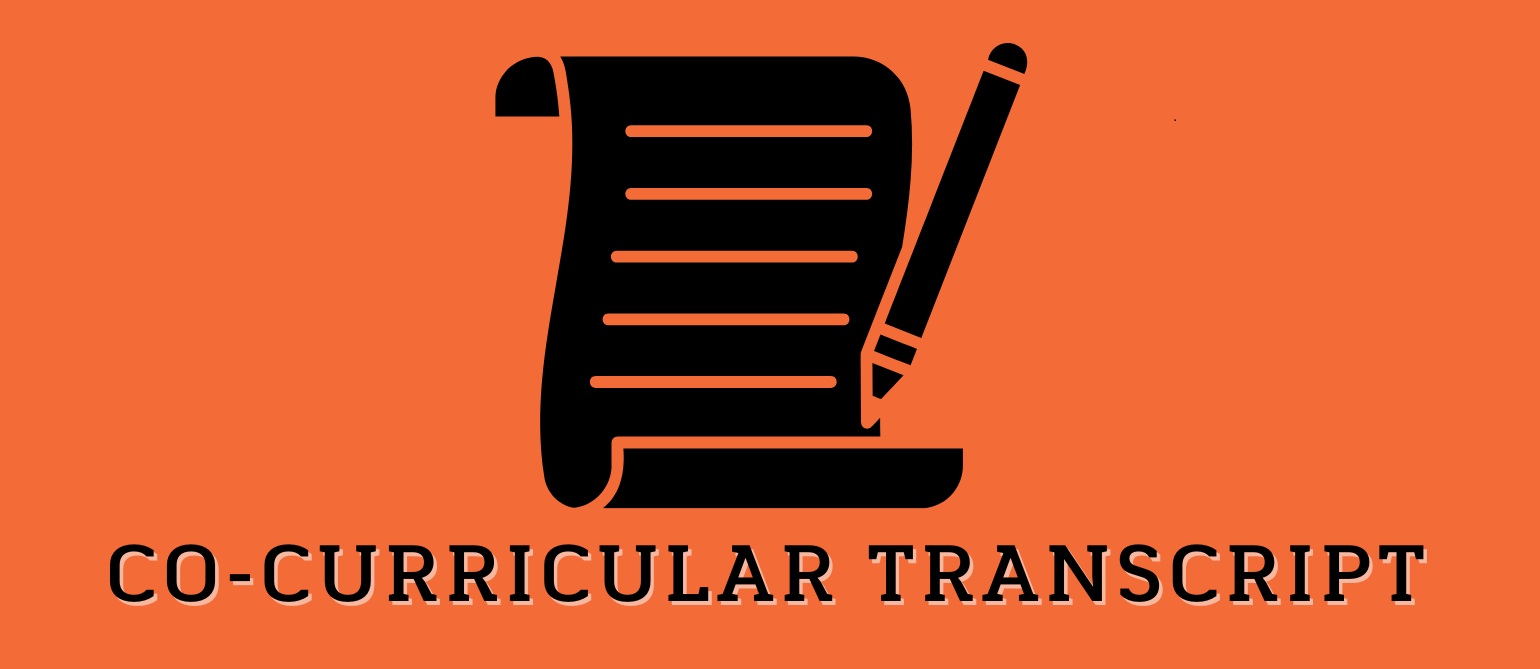
Would you like to showcase your Co-Curricular achievements with SUNY Cobleskill? Get
a copy of your Co-Curricular Transcript.
Take advantage of the Co-Curricular Transcript, available to ALL students.
What is a Co-Curricular Transcript (CCT)?
A Co-Curricular Transcript is an official record of your co-curricular activities
(clubs, organizations, activities), awards, accomplishments, and honors received during
your time at SUNY Cobleskill.
What is a Co-Curricular Transcript used for?
As an official college document, the CCT can be used to support your search for summer employment, internships, graduate school, or a job after you graduate. Official copies of the CCT may accompany your resume, employment, college transfer or graduate school application.
What can be tracked on a CCT?
- Being a member of a club/organization that is a part of SUNY Cobleskill
- Being an executive board member of a club/organization that is a part of SUNY Cobleskill
- Holding a campus leadership position (Resident Assistant, Orientation Leader, etc.)
- Earning any honors and awards (ESLA, Scholarships, etc.)
- Being a member of a campus committee Attending any professional development opportunities (Attending conferences, off-campus workshops, etc.)
- Completing community service opportunities (You can track individual events or a total of community service hours.)
How can I start a CCT?
If you've been involved in a club or organization, your CCT may already be started
in COBYEngage!
Log in and use the links below to see how to access and edit your CCT.
- Accessing your Co-Curricular Transcript in COBYEngage
- Updating Past Memberships in your CCT
- Submitting Experience Requests (Any non-club membership item to track on your CCT)
Best practices for self-reflection sections on a CCT
1. Be Specific and Focused
- Highlight Key Experiences: Focus on 2-3 impactful activities or moments that had a significant influence on your personal or professional growth.
- Use Examples: Instead of general statements, provide specific examples of what you learned or
accomplished.
- Emphasize Personal Growth
- Show Transformation: Reflect on how the experience changed you—your skills, mindset, or perspective.
- Acknowledge Challenges: Mention obstacles you overcame and what you learned from them.
- Align with Goals
- Connect to Future Plans: Link your experiences to your career or academic aspirations.
- Highlight Transferable Skills: Reflect on skills such as leadership, teamwork, time management, or communication.
- Use Action-Oriented Language
- Active Voice: Use phrases like "I developed," "I led," or "I initiated" to convey confidence.
- Quantify Achievements: If possible, use numbers or measurable outcomes (e.g., "Organized a fundraiser that raised $5,000").
- Be Honest and Authentic
- Avoid Overstatements: Reflect sincerely on your experiences without exaggeration.
- Show Vulnerability: Share areas where you struggled or learned valuable lessons.
- Structure Thoughtfully
- Start with the Experience: Briefly describe the activity or event.
- Reflect on the Impact: Discuss how it influenced you.
- End with the Takeaway: Highlight what you learned or how it will guide your future.
- Use Reflection Prompts
- What did I learn about myself?
- What skills did I develop?
- How did this experience challenge me?
- How will I apply this in the future?
- Keep it Concise
- Stick to word limits or concise paragraphs while ensuring clarity and depth.
- Seek Feedback
- Share your reflection with a mentor, teacher, or peer to get constructive feedback.
- Proofread and Edit
- Check Grammar and Clarity: Ensure your reflection is free of errors and reads smoothly.
- Avoid Jargon: Use simple, clear language to communicate your thoughts effectively.
Have any questions?
Contact Us
Office of Student Leadership
Bouck Hall Room 209
518-255-5300
studentleadership@cobleskill.edu
Office Hours
Monday - Friday
8:00am - 4:15pm
Stay Connected with Us

